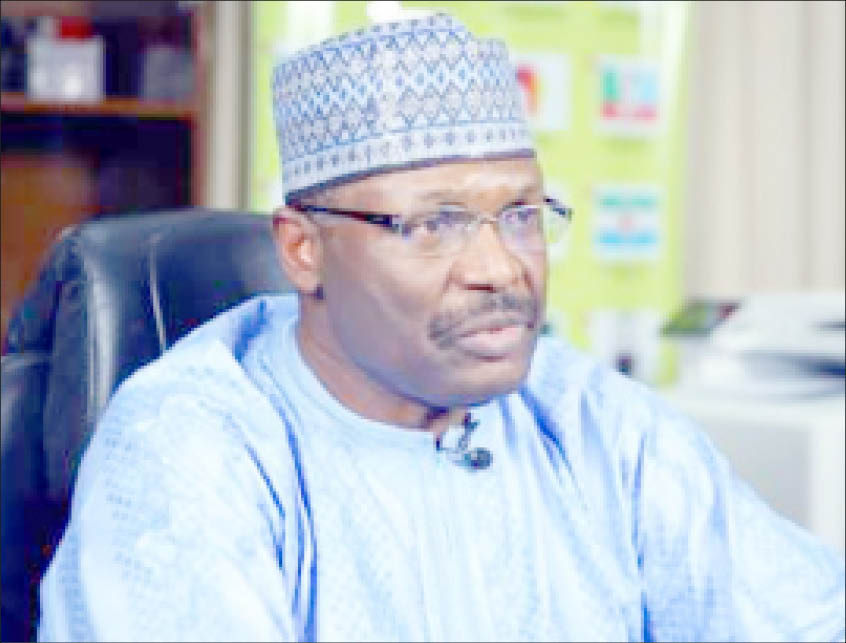Nigeria, INEC and the 2023 general elections
On January 6, 2021, there was an uprising in the United States of America which marked a turning point in the democratic credentials of the beacon of democracy in the world. The significance of that event was the sour taste it left in the mouth of America’s leadership in the democratic world. It also left […]

INEC chairman, Prof Mohmood Yakubu
On January 6, 2021, there was an uprising in the United States of America which marked a turning point in the democratic credentials of the beacon of democracy in the world. The significance of that event was the sour taste it left in the mouth of America’s leadership in the democratic world. It also left a deep hole around the world in the credibility of America’s leadership credentials and a mockery of its standing in promoting the spread of democracy around the world.
That was indeed one of the darkest hours the country has experienced since its civil war and the 9/11 attack. It all happened because a sitting President Donald Trump refused to concede defeat and went ahead to create an atmosphere of mistrust in the electoral system by not only denying the outcome of the election but went ahead to inspire an uprising by making provocative statement to his base, which led to the unfortunate assault on American democracy at Capitol Hill.
As Nigeria inches closer to the 2023 general elections, the Independent National Electoral Commission (INEC) has demonstrated its preparedness and readiness to conduct a free, fair and credible election that will strengthen democracy in the country. In no distant past, elections in Ekiti and Osun states have demonstrated INEC’s resolve and commitment to conduct an election devoid of avoidable recriminations and unnecessary litigations.
In 2015, the election umpire was confronted with a series of challenges, which were surmounted. It was President Ebele Jonathan who saved the day by conceding defeat and called then candidate Muhammadu Buhari to congratulate him on his victory at the polls.
- Vandals cut N5m underground power cable in Abuja – AEDC
- Al-Makura hails Buhari for approving Lafia Federal Teaching Hospital
In the 2019 election, the inconclusive provision of the Electoral Act was invoked in respect of the gubernatorial election in Kano State. It is comforting that the 2022 Electoral Act as amended has cleared the path for INEC to do the needful and prevent such scenarios from reenacting themselves.
The Chairman of INEC, Professor Mahmud Yakubu and his team have clearly demonstrated their resolve to deliver the best election ever in the annals of Nigeria’s electoral history. The enormous task and challenges ahead require INEC to tighten its seatbelt for the sharp bends and narrow bridges it will be travelling before, during and after the election. The frequency of the chairman’s interaction with the media shows the readiness of INEC to leave no stone unturned in its resolve to ensure that a free and fair election is delivered. This approach has made INEC to adopt a marketing concept approach of making the customer the king. In this case, INEC has made the electorate the focus of its resolve to be just and equitable to all stakeholders in the election.
The recent attacks, burning and vandalisation of INEC offices in some parts of the country portend an ill will in the conduct of a peaceful election. Consequently, the security agencies have come on board with INEC and are fully prepared for any eventuality. Another challenge for INEC would be its ability to conduct elections in the volatile and security prone states in North West, North East, North Central and South Eastern geopolitical zones. These are states where the bandits, Boko Haram and IPOB constitute a serious threat to the electoral process. It is heartwarming that the security agencies have resolved to give INEC all the support it needs for a smooth and uninterrupted election to take place in all the states of the federation, peacefully.
The attacks on some presidential candidates, especially the PDP’s Atiku Abubakar’s campaign team in some states is a cause for concern. Although the INEC chairman and security agencies have met over the issue and resolved to decisively deal with anybody associated with any act of security threat to the process.
In its risk assessment, INEC should be mindful of some bad eggs who might plan to replay the uprising in the United States on January 6, 2021 in one way or the other, if their candidate is rejected by the electorate.The security agencies should be hand in gloves with INEC to ensure that such a scenario does not unfold.
The security agencies and INEC should convene a meeting with stakeholders such as Arewa Consultative Forum (ACF), Afenifere, Ohanaze and other pressure and religious organisations such as Supreme Council for Islamic Affairs and the Christian Association of Nigeria to sign a peace accord with them. A similar agreement has already been signed with the leadership of political parties under the leadership of former Head of State, Gen Abdulsalam Abubakar. A stitch in time saves nine.
On voter education, INEC should capitalise on many media outlets, especially the radio stations and the social media platforms in disseminating every information that will motivate and inspire voters to go and cast their votes without any fear of molestation.
President Muhammadu Buhari has reiterated his resolve to bequeath a legacy of free, fair and credible election to the nation and posterity while Professor Mahmud Yakubu and his team have equally resolved to ensure that 2023 general election will strengthen Nigeria’s democracy and prove to the world that YES we can.
Ringim works with Halim Consulting Ltd and can be reached via [email protected]
